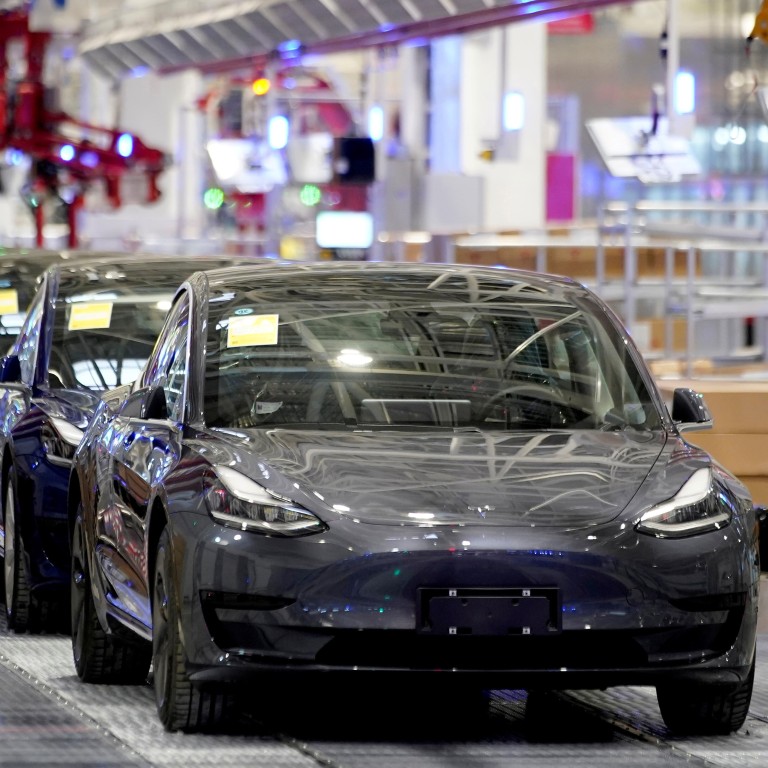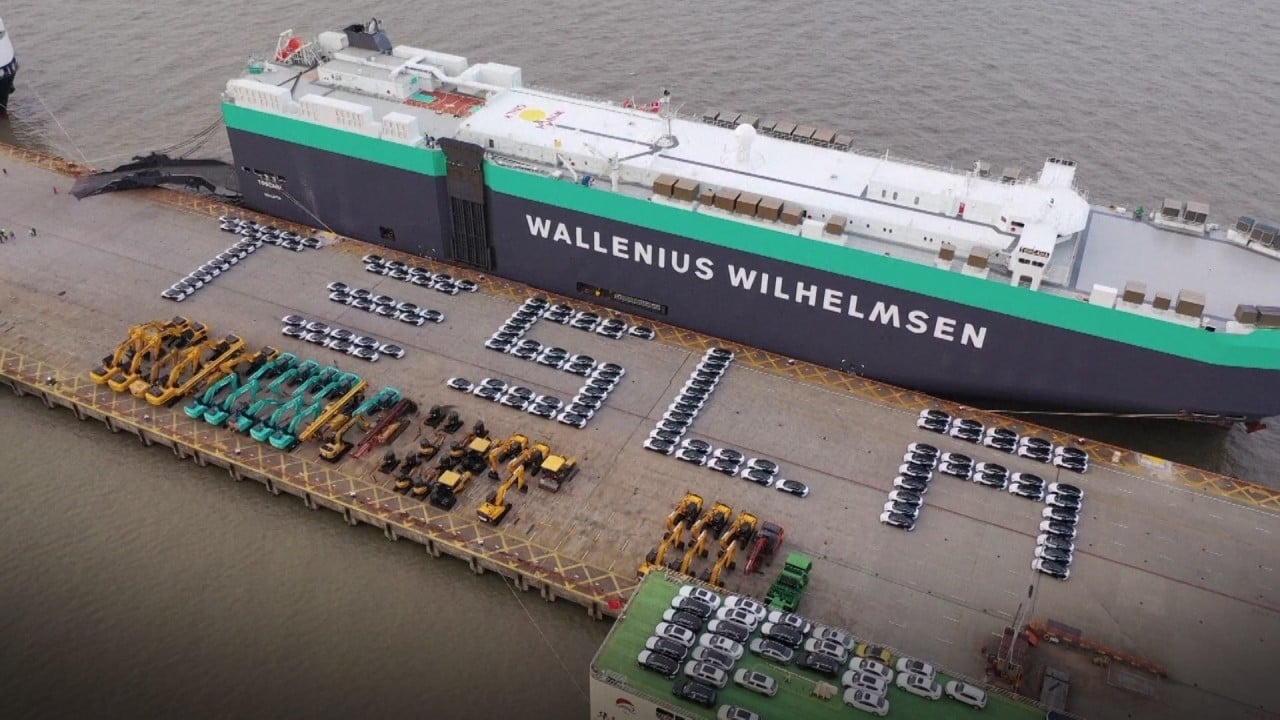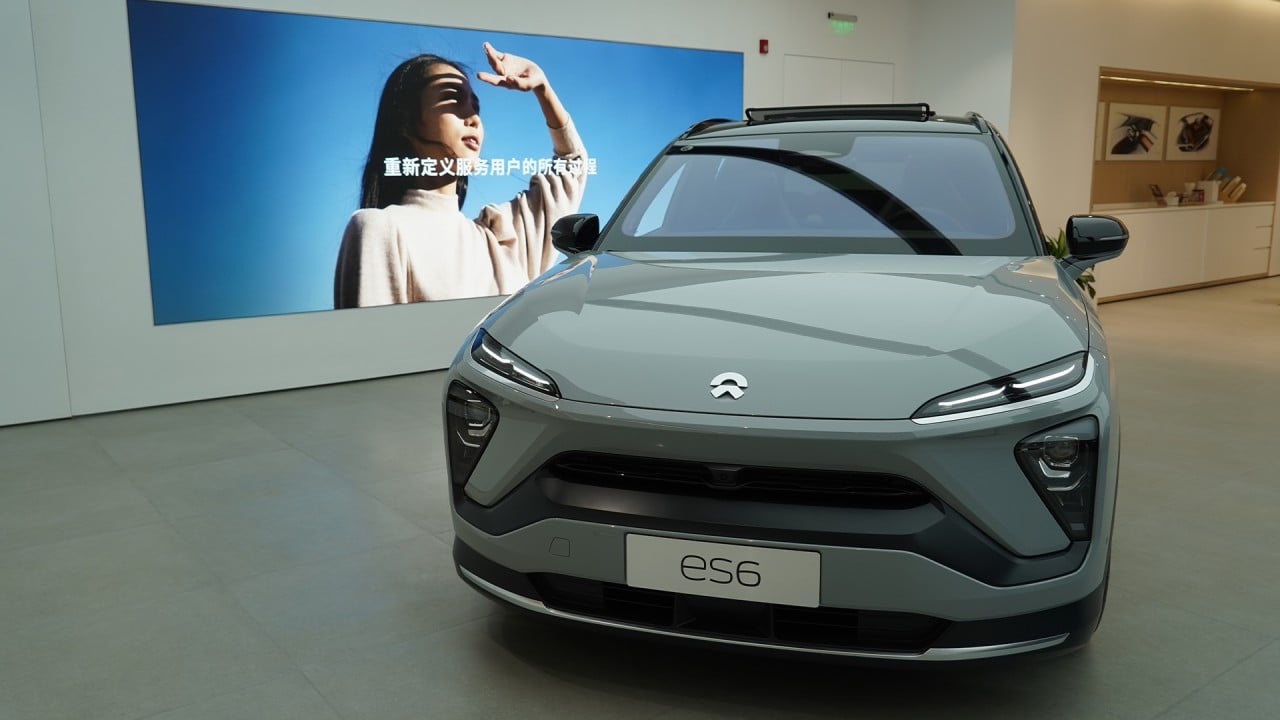
Tesla rejects reports on Qingdao as site of its second China EV plant, pledges to boost investment in booming market
- The information circulating on the internet about the location is not true, Tesla China’s head of communications says on her Weibo account
- Tesla pledges to step up investment in sustainable manner, starts offering financing to car buyers amid a surge in demand
“The information circulating on the internet about the location is not true,” Grace Tao, Tesla China’s head of communications and government affairs, said on her microblogging site Weibo on Wednesday evening. The US carmaker helmed by billionaire Elon Musk would continue to invest in China in a sustainable manner, she added.
The carmaker was responding to rumours that it has decided to build its second factory in the eastern Chinese province of Shandong, home to the nation’s fifth-largest port and better known for its Tsingtao beer. Tao did not disclose the real location.
Tesla spent more than US$2 billion to build its Gigafactory 3 plant in the Lingang free-trade zone outside Shanghai in 2019. The California-based EV maker is the only foreign automotive company with a wholly-owned assembly plant in mainland China.

01:16
Tesla exports first China-made cars to Europe with shipment of 7,000 Model 3 electric sedans
The company, a front-runner in the mainland’s premium EV segment, started building the Model 3 sedans in December 2019 and launched the locally produced Model Y SUV in January this year.
“In the long term, Tesla is set to expand its production capacity in China because of rising demand,” said David Zhang, a researcher for the automotive industry at the North China University of Technology. “It will take some time for the company to make the final decision on how to enforce the plan.”
It is not the first time talks about Tesla’s second plant in China went viral. In March, the firm pulled out of a plan to purchase a piece of land parcel near its Gigafactory 3 factory for a new production line, Reuters reported.
The Lingang free-trade zone, which is connected to the Yangshan port by the 32km Donghai Bridge, is designed to have an annual capacity of 500,000 vehicles.
The Shanghai plant has produced about 300,000 vehicles in the first nine months of this year, according to the China Passenger Car Association (CPCA). About 200,000 Shanghai-made Tesla vehicles were delivered to local buyers and the rest exported.
China, the world’s largest EV market, is expected to report sales of 2.4 million new-energy vehicles – which comprises pure electric, plug-in hybrid and fuel-cell cars – in 2021, more than double last year’s 1.17 million units, according to CPCA forecasts.
Swiss investment banking group UBS predicted that three out of every five new cars in the mainland market will be powered by batteries by 2030.

02:52
Luxury shopping centres open new battleground for China’s electric car makers
Tesla this week began offering car financing services to Chinese customers as a way of making its vehicles more affordable to young drivers. Among the package is a five-year loan that requires zero down payment and charges an annualised interest rate of 4 per cent. It later raised the minimum down payment to 10 per cent amid worries that a flurry of new orders would exacerbate an already severe supply issue.
Tesla said in a statement that the loan with zero down payment has resulted in surging orders for its vehicles, which could prevent it from providing stellar customer experience due to a long wait for the cars to be delivered.
A strong order backlog is causing Tesla car buyers to wait for at least six weeks before getting their vehicles, according to a Tesla sales manager at the HKRI Taikoo Hui showroom in Shanghai.

